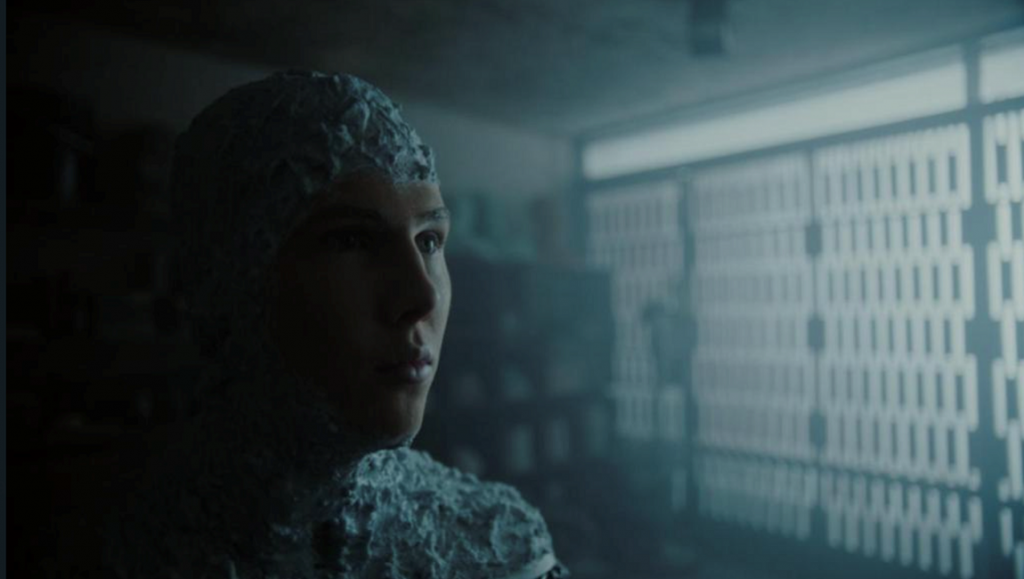The Perfect David, the debut feature from Argentinian filmmaker Felipe Gómez Aparicio, opens with a shot of a teenage male working out, his swollen biceps on full display as he engages in a series of pull-ups. The camera never wavers from its vantage point, fixed just outside a door frame to the room that houses this exercise bar. Blackness fills the outer edges of the widescreen image, and our sole focal point is the stunning specimen of ostensible masculinity before us. This is a visual motif repeated throughout the film, as Aparicio takes great pains in showing his protagonist, the titular David (Mauricio Di Yorio), in a perpetual state of isolation. Single-minded in his quest to obtain the perfect masculine form, David has forsaken anything resembling normalcy in a quest to please his perfection-obsessed mother, Juana (Umbra Colombo). Even when David is seen in a high school setting with his friends, he is always located on the periphery of the group, hugging the edges of the camera’s frame. In its blocking, compositions, and narrative framework, The Perfect David is presented as a horror film more than anything, with a propulsive synth score courtesy of the electronic group EUI building feelings of unrelenting dread as David goes to increasingly dangerous lengths to achieve physical perfection for an upcoming body-building showcase.
It’s quite obvious that Aparicio has a lot on his mind in regards to societal standards of masculinity and male beauty. At one point, the camera lovingly pans over David’s body as he engages in strenuous weightlifting, focusing on each specific muscle group as they bulge and ripple. In another scene, David removes his shirt at a party and is met with cheers and applause by his classmates, fully aware that his body can be used as a tool in pursuit of the approval he desires most, something he is unable to obtain from his cold and distant mother. It’s this toxic relationship between the two that makes up most of the film’s running time, as Juana’s obsession with her son’s physical form borders on the sexual, unsettling in scenes such as when she approaches him from behind and meticulously feels his pectoral muscles for signs of progress. It’s only upon the reveal of the film’s “twist” that the full shape of Aparicio’s thematic intentions come into full focus, as Juana comes to represent a society that both sexualizes and fetishizes its ideals of male perfection, rendering them nothing more than works of art, a la Michelangelo’s famous sculpture of which David is namesake.
Unfortunately, The Perfect David works only as allegory, and David the character is rendered a blank cipher, little more than a collection of symbols and signposts. In fairness, this was clearly done by design, but the film feels cold and distant as a result; a work to admire, but one with which emotional engagement is nearly impossible, operating much in the way of the fetishization culture it seeks to critique. And none of this is helped by the heavy-handed symbolism. David’s sexuality is even called into question at various points, hinting at commentary on masculinity, male sexuality, and their intersection in cultural perception, but that too isn’t really explored in any meaningful way. Yet, despite these shortcomings, The Perfect David is never ultimately less than a film that’s hard to shake, with Aparicio’s strong formal execution its greatest asset, marking the director as an immediate follow. Hopefully, he’ll remember to bring a little more subtlety next time out.
Published as part of Tribeca Film Festival 2021 — Dispatch 6.


Comments are closed.